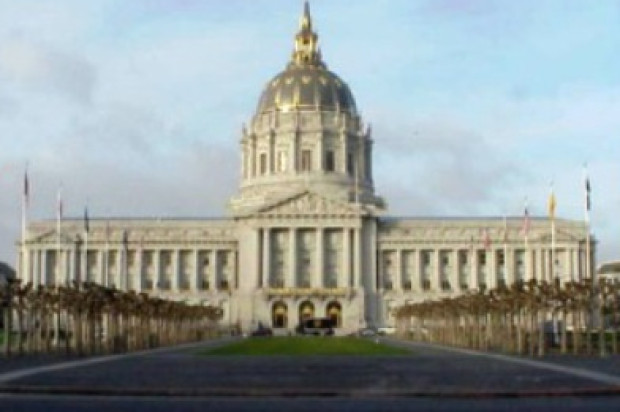
San Francisco Supervisor Scott Wiener announced today that he is pursuing an amendment to the city charter requiring real-time disclosure of top donors for all ballot initiatives and adding a slew of reforms to improve the city’s ballot measure system.
Wiener said the amendment, which he hopes to place on the November 2015 ballot, will require the San Francisco Department of Elections to disclose online and in real-time, the top 10 donors of committees, in support and in opposition, of each initiative. Wiener said this change would provide for full transparency by allowing voters to see who is providing financial support for and against each ballot measures before they cast their votes.
Wiener said that the Soda Tax campaign of 2014, which was opposed by soft drink companies and ultimately defeated at the polls, showed that donors have ways to conceal who is supporting a measure. He said that this initiative would ensure that large donors are made visible to voters.
The supervisor also proposed increased dialogue in the crafting of ballot measures by providing measure proponents flexibility to amend, improve or withdraw a measure before it goes on the ballot.
Wiener said the current system is unforgiving and doesn’t usually allow measure proponents, including residents or elected officials such as himself, to make changes in response to public feedback after submitting their measures to the Department of Elections and leaves them instead with the “decision of pursuing a flawed measure or withdrawing the measure entirely.”
While current law requires an informational hearing be held on each measure, it does not allow the authors to make amendments in response to feedback at that hearing. Wiener suggests that following the hearing proponents are given a couple weeks to make amendments based on the feedback provided by the public.
Wiener suggested a 30-day public interaction and review period, including the required public hearings, after proponents have filed initiatives, but before they collect signatures, allowing them to amend the measures, if they choose.
The amendment also aims to address significant fluctuations in the number of signatures required for an initiative by changing the formula for calculating the number of signatures required. Currently, voter initiatives must contain at least 5 percent of the votes cast in the last mayoral election.
However, Wiener said that formula is “arbitrary” and results in significant swings, making it harder to qualify measures for four years after a high-turnout mayoral race and easier after a low turnout race.
Wiener suggests instead, to base the formula on a percentage of the city’s registered voters, allowing for greater stability.
The supervisor said today that he was “inspired” by a bipartisan reform for statewide measures recently adopted by the state Legislature. He said he hopes his proposal prompts San Franciscans to have a healthy discourse on how the initiative process works and how it can be improved.
Wiener said the initiative system is “at the heart of San Francisco’s democratic process, and it needs to be well-thought-out and transparent.”
Sarah Swanbeck, a policy advocate with California Common Cause in Sacramento said the state law was a good first step in more closely aligning the legislative process and the initiative process.
She said that when the initiative power was created on the state level in 1911, it was seen as a way of enabling Californians to circumvent the state Legislature, which was at the time controlled by the Southern Pacific Railroad and other monied interests.
Swanbeck said ballot initiatives were once considered a last resort, but have more recently been perceived as a device for special-interest laws by individuals or groups that can afford to pay the high cost of gathering signatures.
Wiener said through his amendment he aims to provide ballot measure proponents with increased flexibility while making the initiative system more transparent.
Hannah Albarazi, Bay City News









